Rope for ships plays a crucial role in ensuring safety and operational efficiency on every voyage — whether for fishing boats or cargo vessels. However, choosing between PP, Polyester, and Nylon ropes can be challenging, as each type offers distinct advantages in strength, elasticity, and resistance to seawater — essential factors for offshore performance. In this article, SIAM Brothers Vietnam provides an in-depth comparison of PP, Polyester, and Nylon rope for ships, helping you select the most suitable type for your vessel to ensure safety, stability, and cost efficiency.
Rope for ships refers to a specialized rope used for mooring, towing, or controlling vessels during docking, transit, and anchoring. It is a vital safety component that ensures the stability of fishing vessels, cargo ships, and port systems under changing weather and tidal conditions.
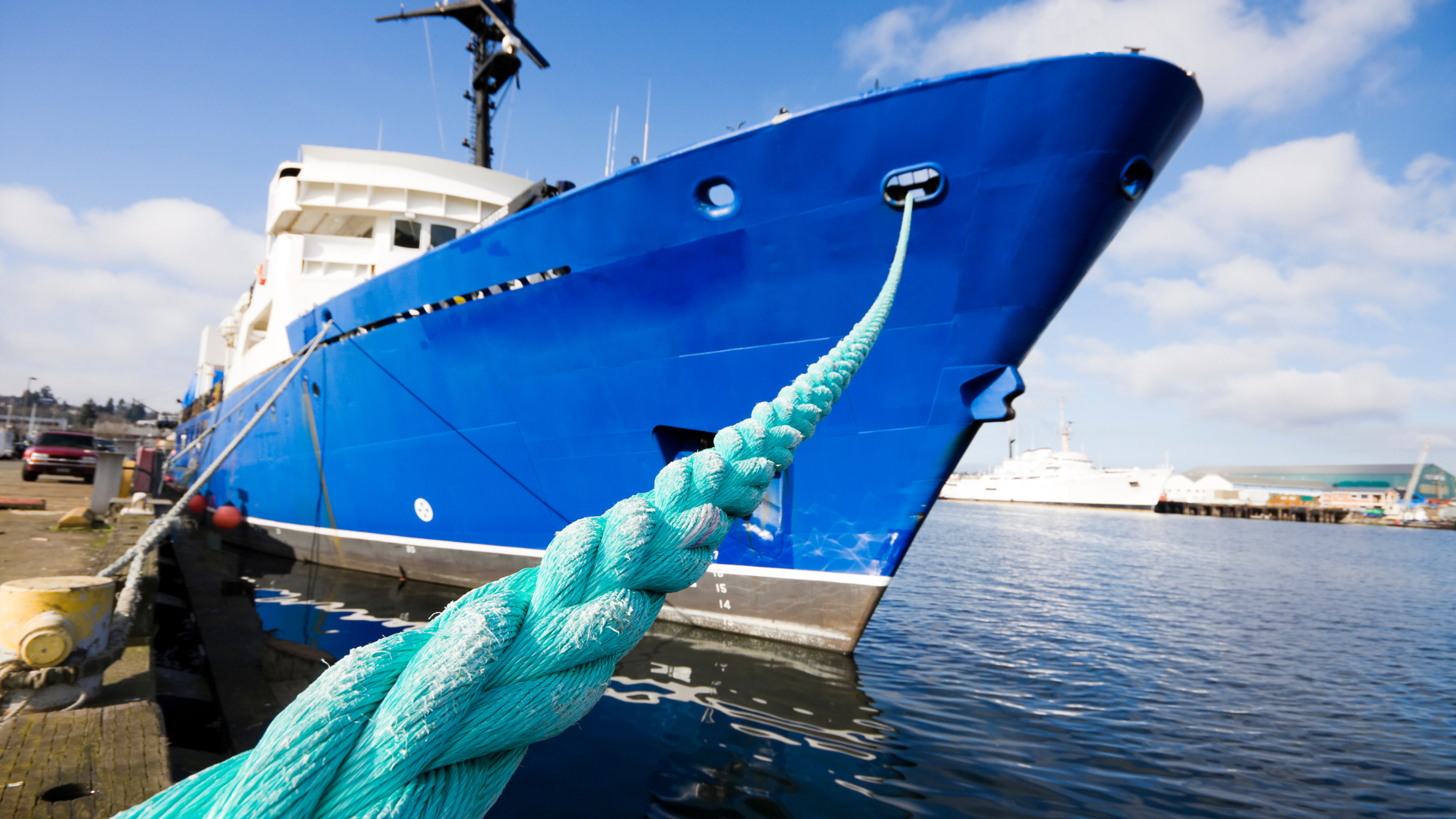
Key Features:
Limitation: Lower elasticity than Nylon and less UV resistance without protective coating.
Application: Best suited for coastal fishing vessels, service boats, or short-term mooring setups.
Key Features:
Limitation: Heavier than PP and does not float, requiring handling care for smaller vessels.
Application: Commonly used for large cargo ships, permanent mooring, and port installations.
Key Features:
Limitation: Absorbs water, increasing weight during prolonged marine use.
Application: Perfect for offshore fishing vessels, heavy cargo ships, or mooring in rough waters.
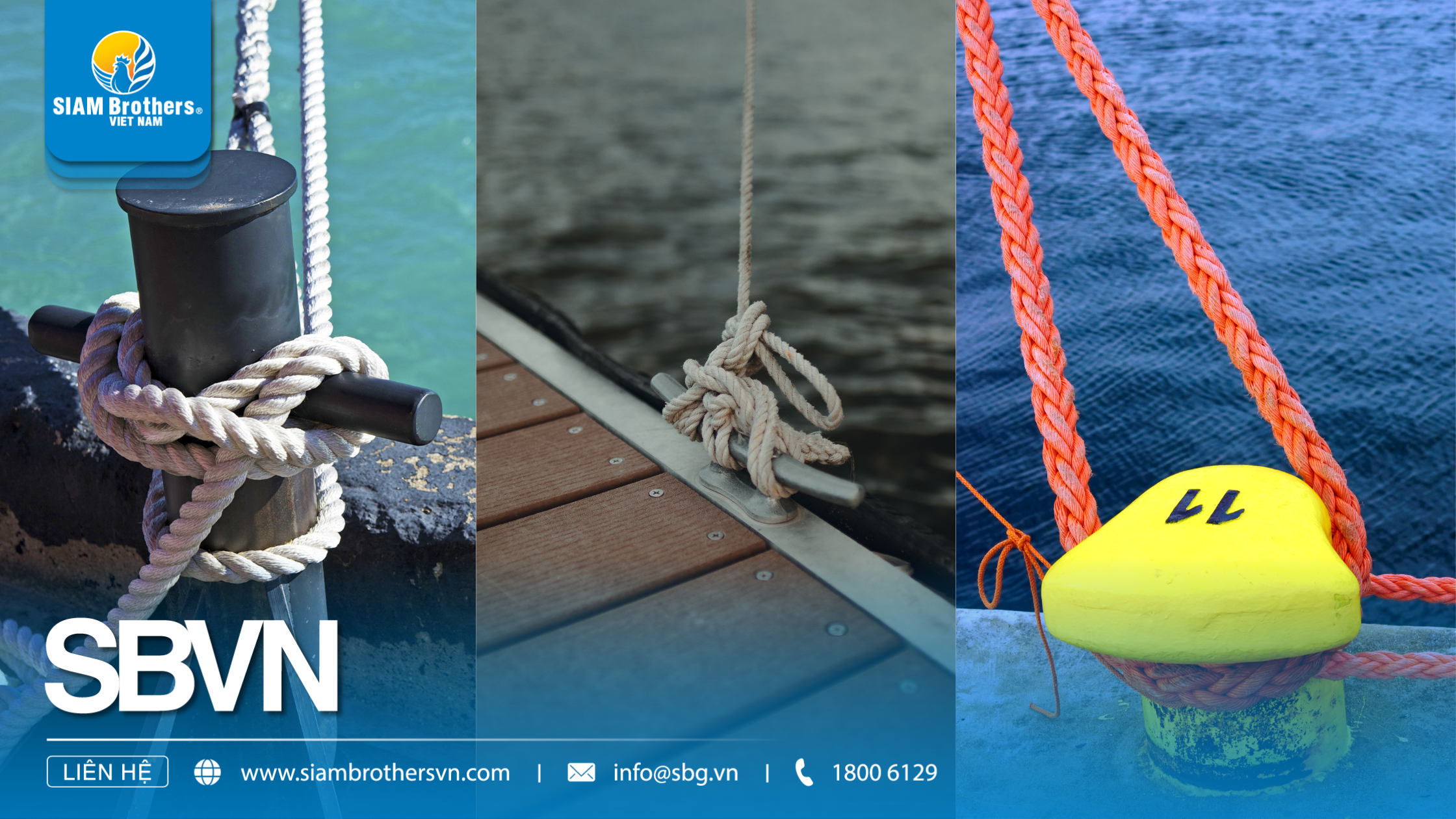
| Criteria | PP Rope (Polypropylene Rope) | Polyester Rope | Nylon Rope |
| Weight | Lightest, easy to handle, floats on water | Heavier than PP, non-floating | Heaviest, absorbs water |
| Tensile Strength | Moderate – suitable for light loads | High, stable under all weather conditions | Very high, especially under impact load |
| Elasticity | Low | Low to medium | Highest, excellent shock absorption |
| UV Resistance | Moderate, prone to degradation without UV protection | Excellent, highly resistant to UV rays | Good, but may decrease with prolonged exposure |
| Abrasion & Chemical Resistance | Excellent resistance to chemicals and oil | Excellent resistance to friction and weather | Good, but may weaken under long immersion |
| Buoyancy | Yes | No | No |
| Cost | Lowest | Moderate | Highest |
| Typical Applications | Small fishing boats, temporary mooring | Cargo vessels, fixed mooring systems | Offshore vessels, heavy-load anchoring |
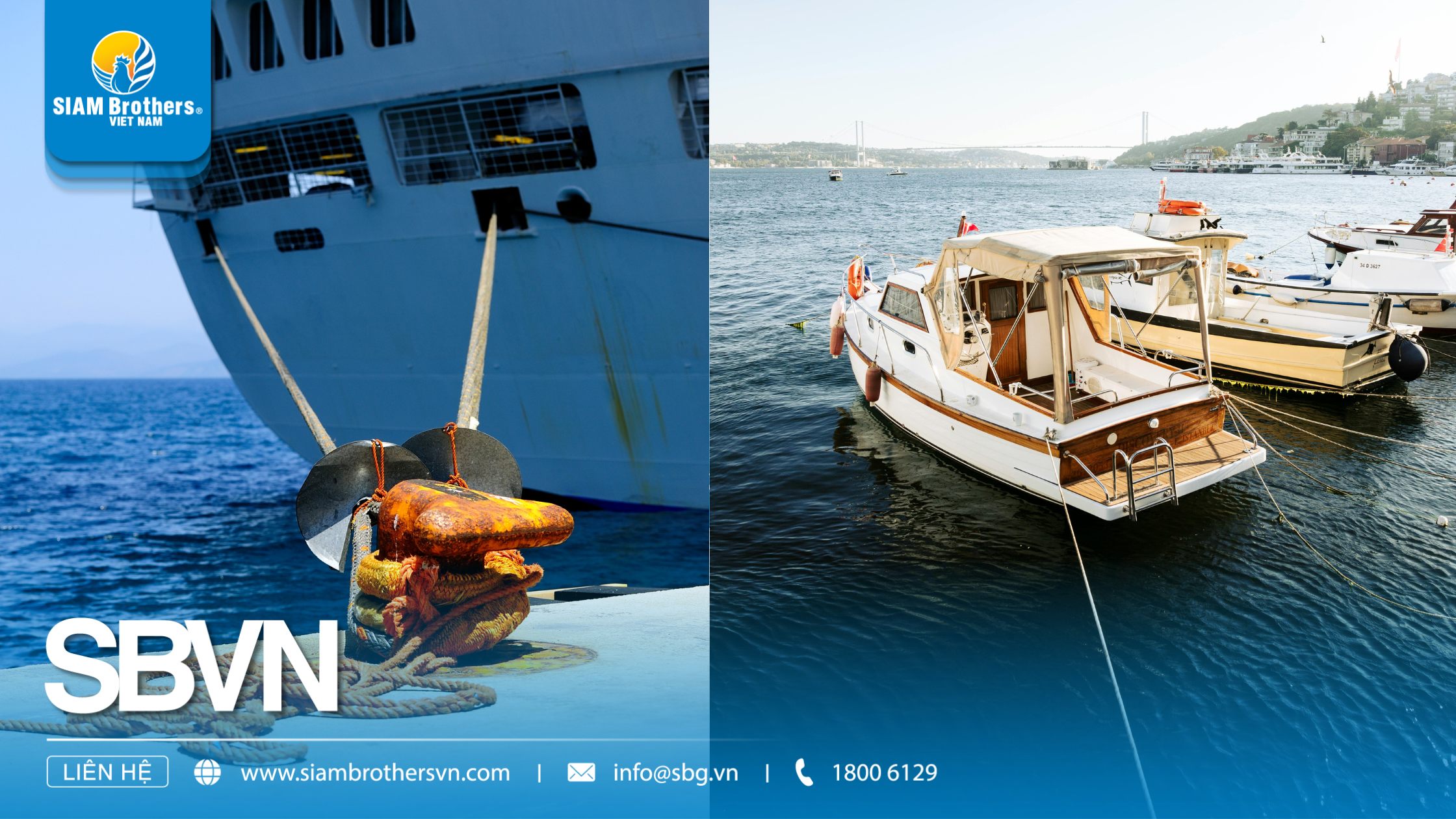
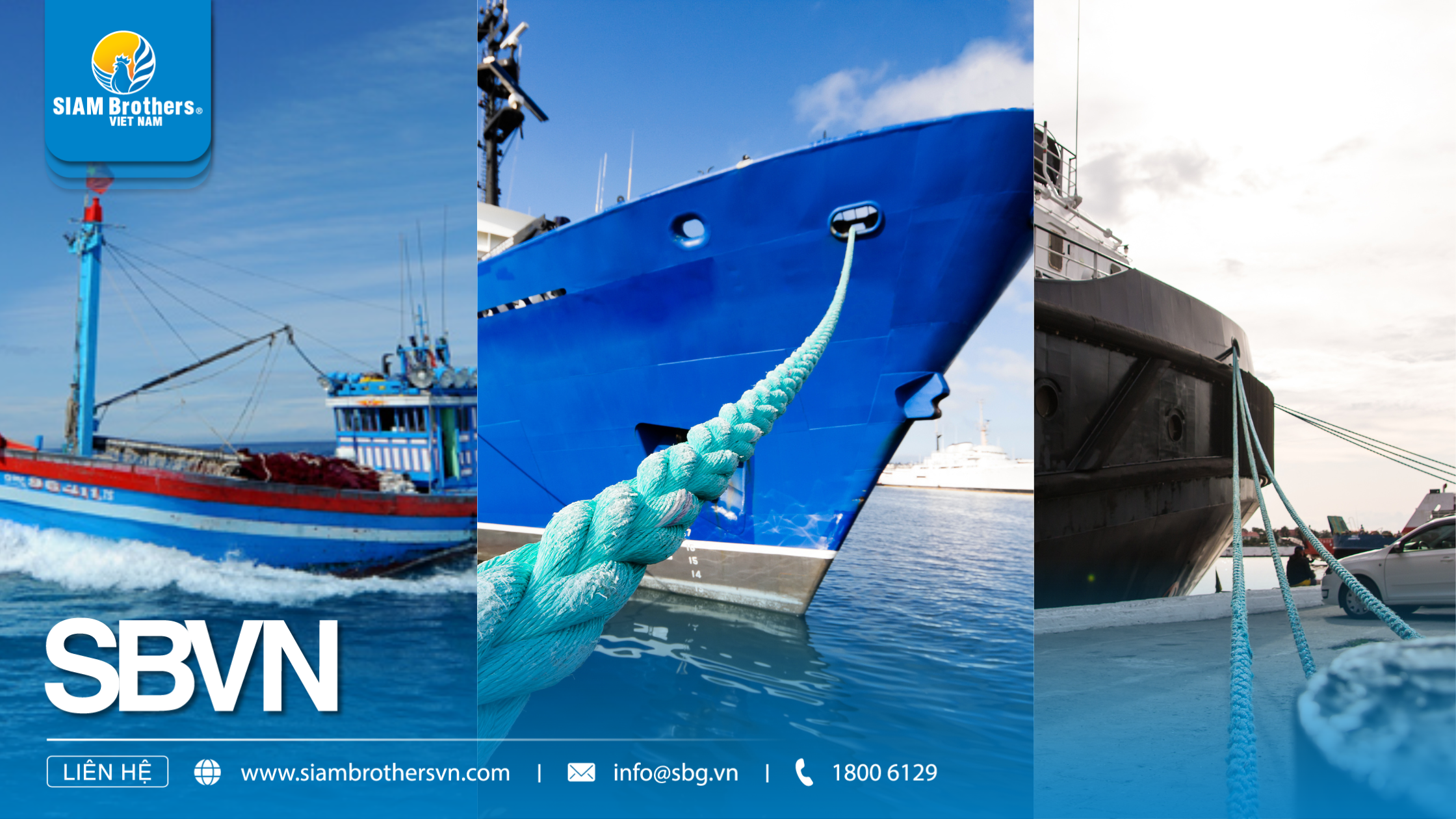
Issue: Many ship operators select ropes based on price rather than the actual load requirements of their vessels. Ropes with too small a diameter can easily break under heavy tension or strong winds.
Solution:
Issue: Some ships operating in saltwater still use ropes without UV or salt resistance, leading to rapid aging, fraying, and reduced strength after only a few months.
Solution:
Issue:
Solution:
Issue: Ropes of unknown origin may use poor-quality fibers that fail to meet load and safety standards, increasing the risk of rope failure and vessel damage.
Solution: Always purchase Rope for Ships from reputable manufacturers such as SIAM Brothers Vietnam, which ensures strict quality control and international certifications.
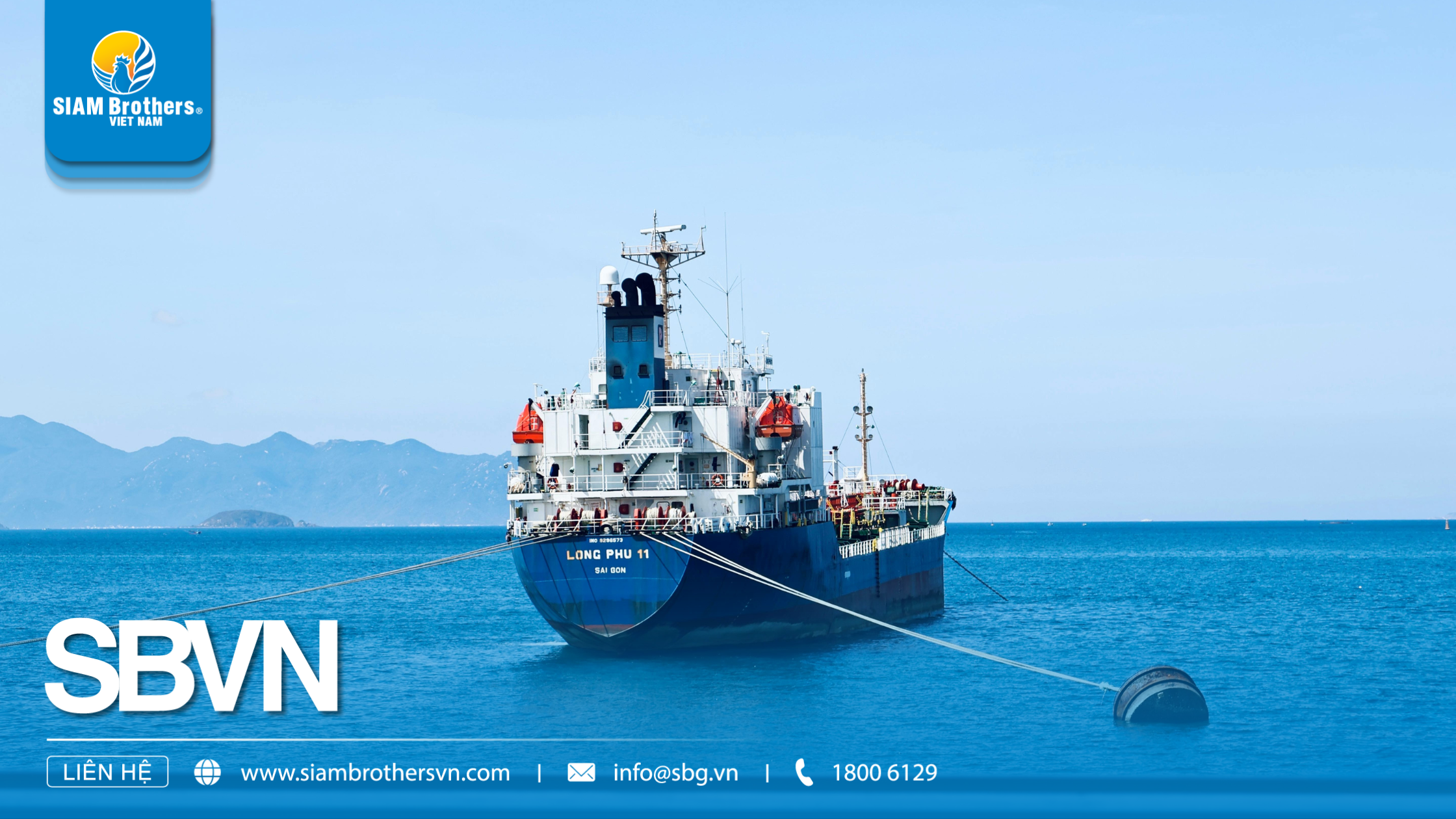
Depending on your vessel type and operating environment, you can choose PP, Polyester, or Nylon rope.
Marine ropes generally last 1–3 years, depending on usage frequency and environmental exposure. Replace immediately if you notice fraying, stiffness, deformation, or loss of elasticity to maintain safety.
It’s not recommended. Each vessel type requires ropes suited to its load and environment.
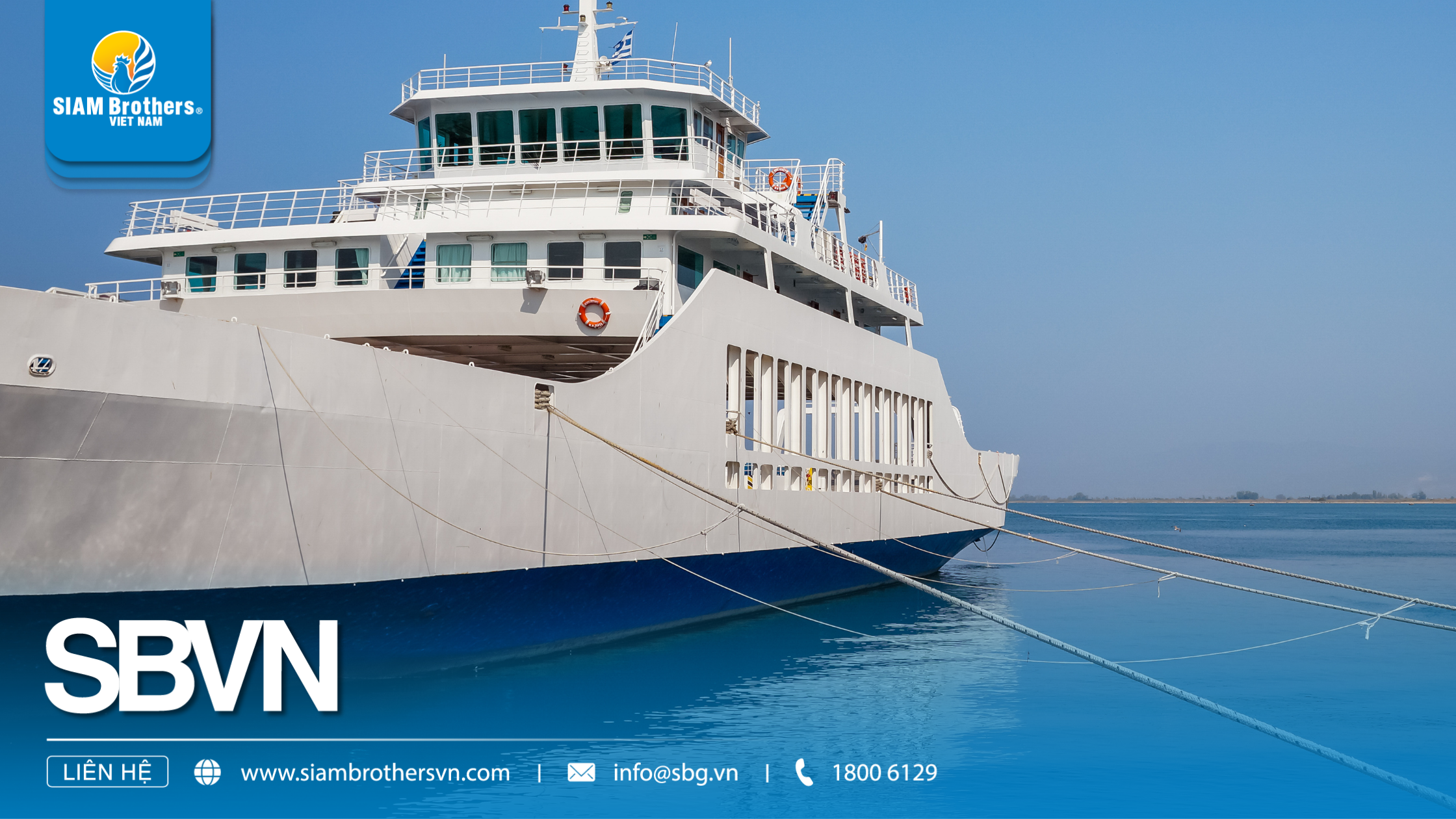
Rope for Ships plays a vital role in ensuring both the safety and performance of fishing and cargo vessels. Each material offers distinct advantages — PP ropes are lightweight and buoyant, Polyester ropes are UV- and weather-resistant, while Nylon ropes provide exceptional flexibility and tensile strength.
Selecting the right marine rope not only reduces maintenance costs but also enhances safety and operational efficiency.
If you are looking for high-quality, durable Rope for Ships that meets international standards, contact SIAM Brothers Vietnam today for expert consultation and product recommendations tailored to your vessel type and operating conditions.
Source: SIAM Brothers Vietnam
Contact us:
► Address: 5th floor, VRG Building, 177 Hai Ba Trung Street., Xuan Hoa Ward, Ho Chi Minh City, Vietnam
► Hotline: 1800 6129
► Tel: (+84) 28 38 912 889
► Email: info@sbg.vn
► Follow us for more details at: Facebook - Zalo OA - Tiktok - Youtube - LinkedIn
Download SBVN ID app here:
► CHPlay
► Appstore
